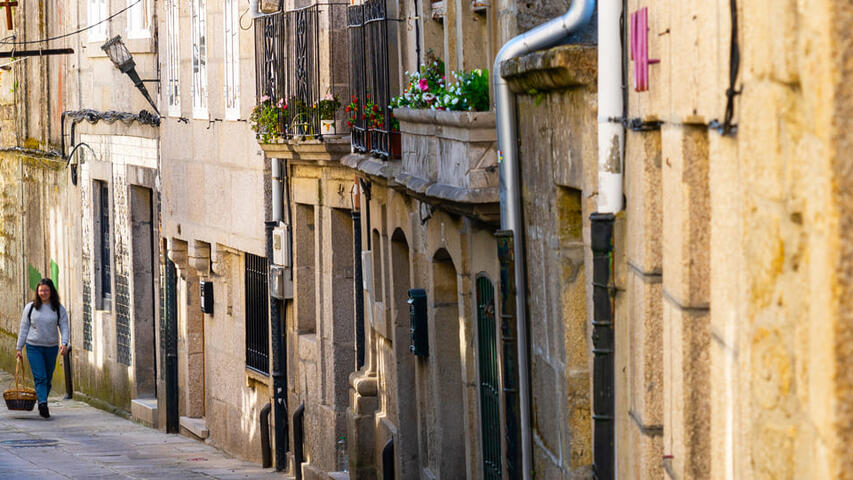Sephardic community in Rías Baixas
In the Middle Ages, Jews settled in various parts of the Galician community. Tui was one of the most important Jewish quarters, and they also left their mark in Baiona and Salvaterra.
Tui is Swabian and Visigoth, it is Jewish and Christian, it is medieval and its impressive historical-artistic ensemble has been declared an Asset of Cultural Interest (BIC ). It has been the link between Galicia and Portugal and had the privilege of being one of the seven provinces of the Kingdom of Galicia. Its fascinating history is completed with an important Jewish presence in the municipality during the Middle Ages.
Tui also had a synagogue, located at the foot of the Porta da Pía, at the entrance to the city.
Existing documentation suggests that the group decided to settle in the old quarter, within the walls and under the protection of the bishopric. It also refers to the existence of a synagogue, a cemetery and dwellings inhabited by members of the community.
Tui preserves an important heritage from this period, buildings such as the House of Solomon and the courtyard of the synagogue, and historical objects such as the 'sambenitos', documents of the Inquisition that record 14 punishments imposed on the people of Tui and Baiona and which are considered unique pieces in Europe.
The silver pieces kept in the Cathedral Museum were made by silversmiths such as Abrahán, Jacob and Pero Amin, among others. Also important are the works made by stonemasons who, for generations, used their own lapidary signs, including the menorah in the Gothic cloister, which indicates the integration of the Jewish community into the Christian town.
A signposted route
The easiest way to discover the heritage of Tui linked to the Jewish community is to follow the Jewish route signposted in the historic centre. The route starts from the Plaza de la Inmaculada and through the QR codes available on each sign you can find out more information about each element. There is an information leaflet on this route published by the City Council. Tui is one of the dozen Spanish cities participating in the European Days of Jewish Culture, which are held simultaneously in several EU countries.
Tui also had a synagogue, located at the foot of the Porta da Pía, at the entrance to the city. The word "pía" is related to the Jewish ritual bath or micvé, which was located in the courtyard of the synagogue, in Ordóñez street. In the immediate vicinity, near the cathedral and the convent of the Poor Clares, is the old church of Santa Maria de Oliveira. It was the area closest to the wall, where the 15th century Jewish dwellings were located.
In the cemetery, located on the outskirts of the city, possibly in the suburb of Riomuiños, burials were held with all the particular rites of the religion. High places were sought, close to a river or stream, and Tui fulfilled all the requirements. In 1942, the Catholic Monarchs ordered the expulsion of the Jews from the Kingdom.
You can't miss it...
- Cathedral Museum
- Synagogue
- Solomon's House
- The Menorah in the Cathedral
